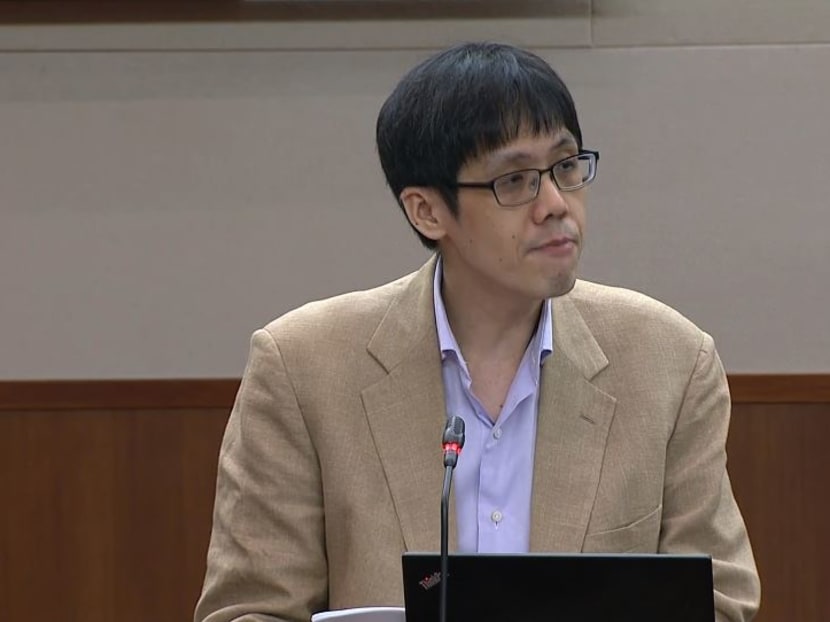Strong core of S'porean academics needed to ask ‘critical questions’: NMP
SINGAPORE — There needs to be a strong core of Singaporean academics to keep the country on the right path if a time comes when the government of the day has less integrity and ability, or is not in power at all.

Associate Professor Walter Theseira stressed that academics here could contribute to areas that are valuable to the Government, such as in policy or public work.
SINGAPORE — There needs to be a strong core of Singaporean academics to keep the country on the right path if a time comes when the government of the day has less integrity and ability, or is not in power at all.
Associate Professor Walter Theseira, a Nominated Member of Parliament (NMP), said during the Budget debate in Parliament on Wednesday (Feb 27) that in order to build this core, the Government needs to be more transparent in sharing official data and be more accepting of research results that go against the official narratives or policies.
He pointed out that although Singapore residents make up about half of the academic circle here, most of them are teaching staff members rather than faculty members.
There is also a weak representation of Singaporeans among younger faculty members, meaning there is a greater reliance on foreigners critiquing the country’s leadership and development, Assoc Prof Theseira said.
“Singaporeans must be in charge of asking the critical questions about who we are, what the problems in society are, and how to solve them. We have always said that no one owes us a living. But no one owes us an answer either, about the key questions of our society and economy. We are frankly too small for experts from elsewhere to want to study us thoroughly. And in any case, we should never depend on them,” he added.
Having said that, he noted that Singaporean academics continue to face obstacles when they are studying issues that affect the country.
LACK OF ACCESS TO DATA
One reason is the lack of access to data from the Government. This hinders their ability to build up their academic credibility.
“Academic credibility depends on being able to publish independent research findings based on high quality data or observations. Much of this data is held by Government. Hence, research and publication often depends on Government agreement.”
Urging the Government to be more accepting of research results that may be inconsistent with official narratives or policies, he added that the Government should “make room for disagreeable academics” to present their views on policies.
LACK OF RECOGNITION FOR RESEARCH
Assoc Prof Theseira also called on Singapore’s autonomous universities to give greater recognition to research done here.
He said that the emphasis on boosting university rankings through the number of publications or citations that their academics receive has led to a lack of attention for home-based research.
To be published in prestigious journals, academics typically focus on non-local issues because there is more international interest in them.
While there have been many “quiet contributions” by Singaporean academics to the Government in the form of research collaborations, consultancies and advisory panels, these received less recognition compared to journal publications.
As a result, their contributions received little attention.
He urged the Government as well as the autonomous universities to systematically document and acknowledge the contributions of Singaporean academics to policies and society.
‘LOW VALUE’ OF WORK
One other obstacle hindering academics from working with the Government, Assoc Prof Theseira said, is that when it comes to furthering their careers, Singaporean academics usually prefer to secure a tenure track in academia, in line with international norms.
“Work outside (academic institutions) is implicitly or explicitly considered low value and is sometimes a ‘one-way door,’ where if you leave academia, you risk never returning as a faculty.”
However, he stressed that academics could contribute to areas that are valuable to the Government, such as in policy or public work.
“Can we have the flexibility to have academics seconded to work outside academia, in Government, civil society, and the private sector, to contribute their expertise and to return thereafter?
“One concrete proposal is for the Government to have establishments specifically for rotating academic experts and to reimburse the autonomous universities for their faculty time.”
SAFEGUARDS FOR THE FUTURE
While he acknowledged that he is venturing “dangerously close into political territory”, Assoc Prof Theseira reminded the House that the country’s leadership is not always dependent on the ruling People’s Action Party.
“Our former prime ministers have stated that there is no guarantee your party will be in power forever. Your party may well be in power, but it may be a different party with less integrity and ability than today. Or it may not be in power at all.
“If and when that happens, to set and keep Singapore on the right path, let us invest today to have institutions in place that allow Singaporeans to speak from a position of strength on the issues of the day and challenge any future government that they feel is not acting in the best interests of Singaporeans.”








